Darkness at noon
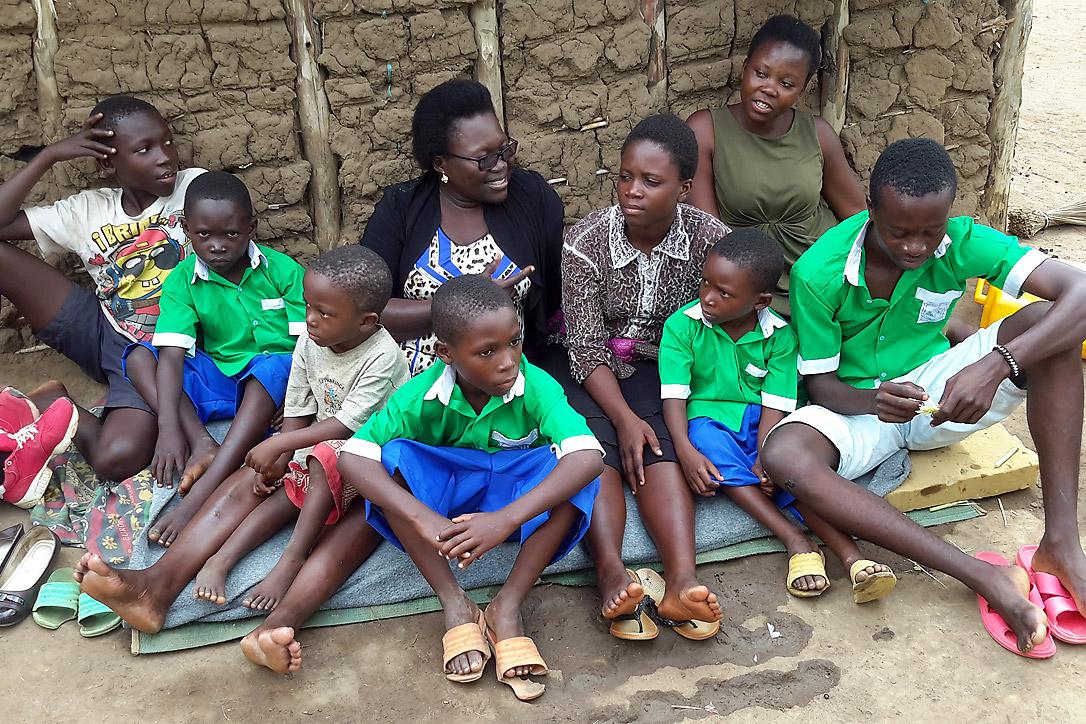
An adult to take charge: Betty Lamunu, center, of LWF Uganda, offered some motherly care to an orphaned family. Photo: LWF Uganda/Z. Asianju
A day with orphaned refugee children
Children without parents are a sad reality in many refugee camps. Often, relatives or older siblings take over the parental role. LWF Uganda staff member Betty Lamunu visited a family of nine siblings that LWF supports in Rwamwanja refugee camp, Uganda. Her impressions show how much it means to the children to have an adult take charge for a day. All photos: LWF Uganda/Z. Asianju
There are places in the world today which make God weep for the pain inflicted in the lives of innocent souls. I recently concluded my monitoring and evaluation work in Rwamwanja Refugee Settlement, Uganda. As monitoring and evaluation professionals we are not only passionate about data and information but about the human beings behind that data. That’s why I chose to spend half a day with a refugee child-headed household of nine children. The eldest child is 17 years old, the youngest only one and half years. In total they are two girls and seven boys.
The oldest sibling, Flora (not her real name), told us how the Allied Democratic Forces (ADF) guerilla attacked their village Namiki in Beni, Democratic Republic of the Congo (DRC) in North Kivu on 24 November 2015. This ‘darkness at noon’ hit the family so deep that the survivors were left with no choice but to flee to Uganda. The children witnessed the brutal murder of their mother and father; and the brutal rape of their two sisters by a gang of armed men. The eldest girl of the family died as a result of gang rape.
One can only imagine the scars this experience has left on the children’s souls. The Lutheran World Federation (LWF) Child Protection Team received the other nine children at Rwamwanja in January where they were given shelter and food, and basic psychosocial therapy. Assessments determined the full condition of the children. They were then moved to a house which was constructed by the entire community. LWF provided the building materials and continues to provide support – basic relief goods and school materials.
My day with the children was meant to be a reflection of normal family life where the children agreed that I play a motherly role, doing all the chores mothers normally do. After some introductory conversations, we agreed on the tasks for the day.
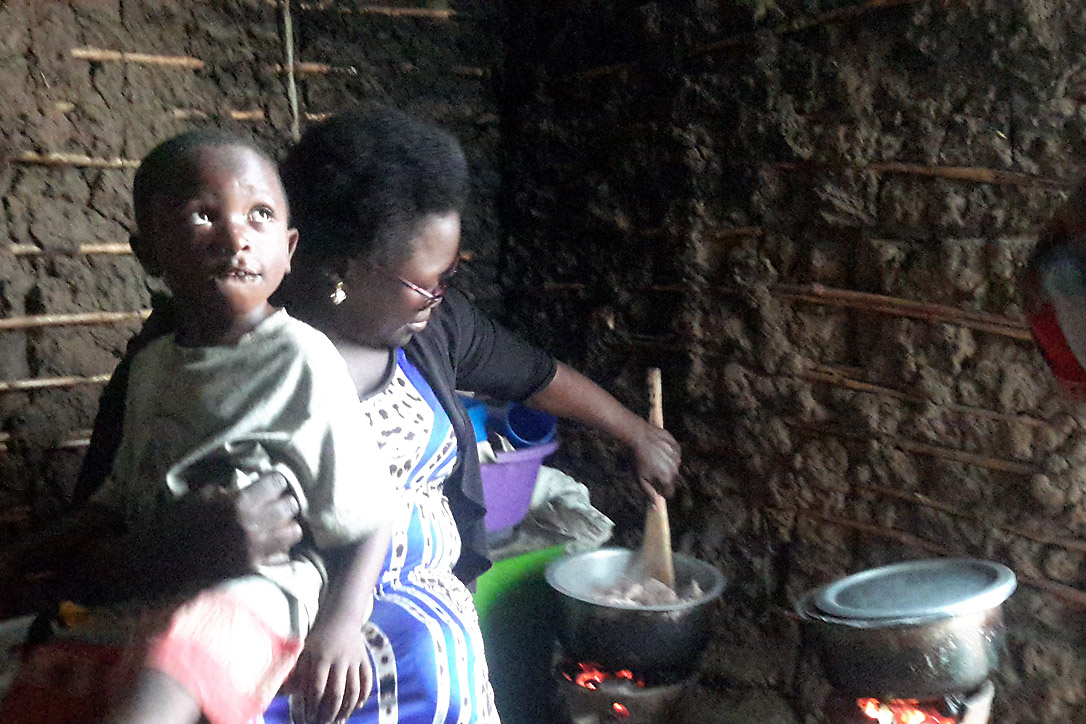
Preparing the meal for the day: There was visible excitement as the children watched me take charge in their makeshift kitchen to prepare a meal. The excitement turned into heehee, huhoo, hahaa and such exclamations when I emptied the polythene bag I had brought into a tray. Meat! I learnt that the children had not eaten meat since they left their home. That makes it six months of eating only one type of food – beans and posho (maize flour porridge).
“Today is going to be different, just today,” I said. “You will eat meat and rice. So all of you must work very hard in school and be good children so that when you grow up, you will buy plenty of meat to eat,” I beamed in a mixture of English and poor Kiswahili which was quickly translated by the LWF case worker in charge of the family.
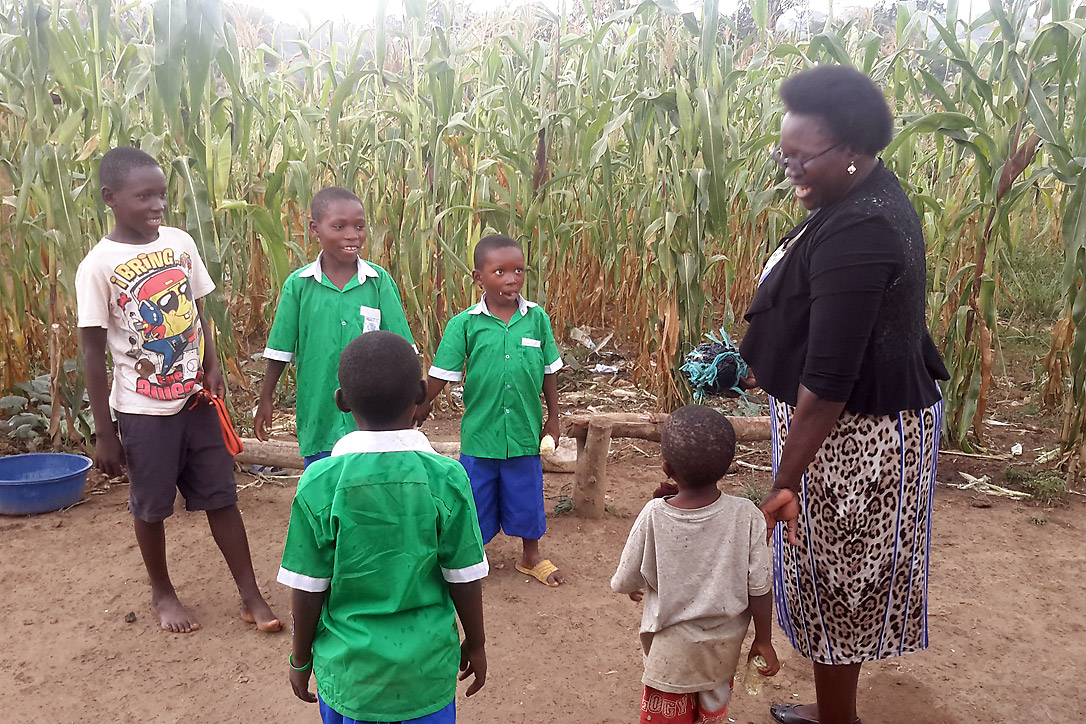
A game of football: As the food was cooking, the boys suggested we play football. They asked if I had come with a ball. My response was “No” I told them that there were plenty of balls lying around. They all burst out laughing, wondering if I meant what I said. There were plenty of polythene bags lying about in the compound. After asking them to pick two or three of those dirty polythene bags each, we made a ball by rolling them together and wrapping them tightly with a piece of string. The younger boys were thrilled.
Two football teams were formed. My team of course had little Jimmy, who insisted I play as goal keeper. I failed my team for I conceded eight goals before reinforcement came. Even that was really fun. Three of the younger boys found new names – Ronaldo, Messi and Rooney. The game was so exciting that when it started raining, the children did not even notice. They insisted on playing in the rain until I told them to go inside.
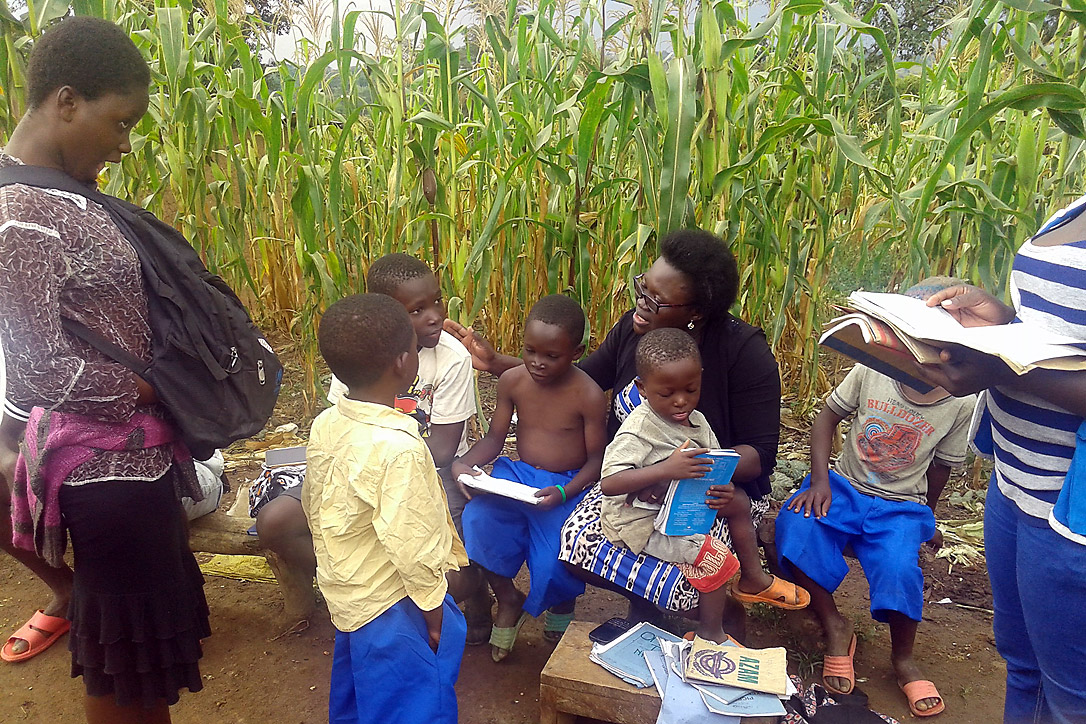
Checking academic performance: I asked to check their books to see how they were performing in school. There was general protest and laughter. The children told me that learning in English is difficult because in the Congo, they used to speak French. The younger boys were doing quite well in class work. However, Flora and the eldest brother were struggling although they were both in primary seven. “I cannot concentrate in class,” Flora said, sadly. “I am the one who takes care of the children and all the time I worry about them. The youngest child is sickly most of the time and I have to take care of her besides the frequent travel to the hospital. That makes me to miss going to school a lot.”
She was also quick to add, “I am proud to be their mother, and it is good that we are all going to school. I pray that we all finish our studies and become important people. Very many children from the Congo have lost their parents. I am grateful that LWF is supporting us.”
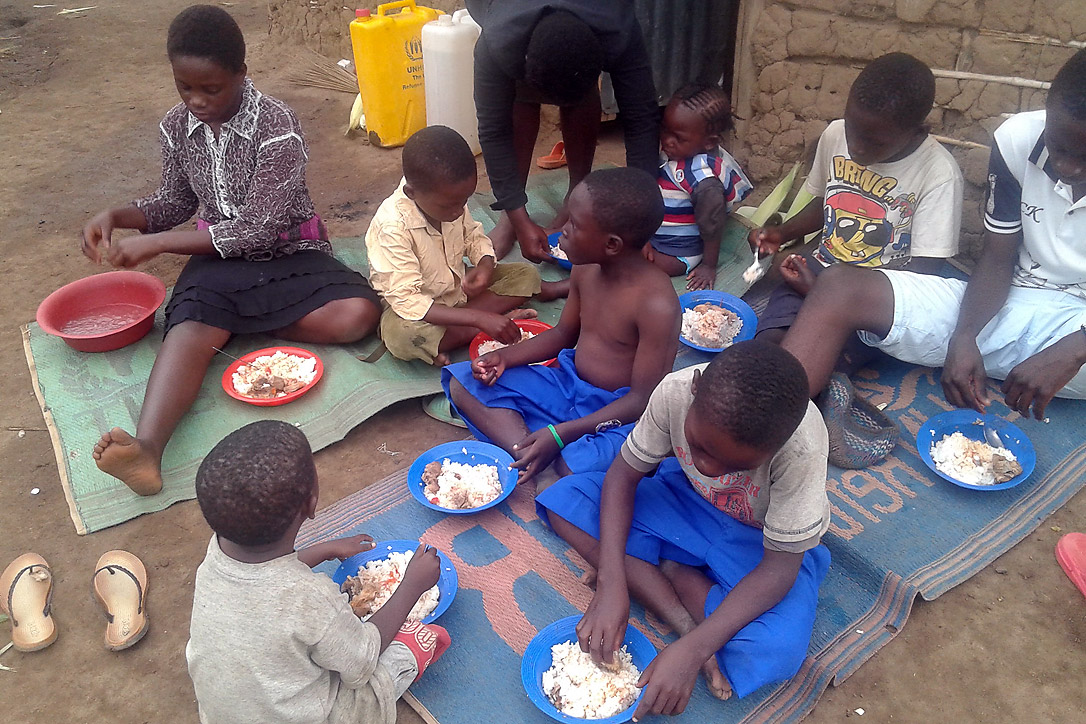
Departure: At 6:15pm, the air was filled with such joy that nobody noticed that it was getting late. The children were excited, everyone chatted happily. It was a good day with a ‘mother’. Flora especially could not hide her happiness. “Asanti sana, Auntie Betty,” she said. In most parts of Africa, all adult females are Auntie. But most important was giving a pat on the back of each of those children. Sometimes, one just needs a pat on the back. The day ended with hugs and pats on the backs.
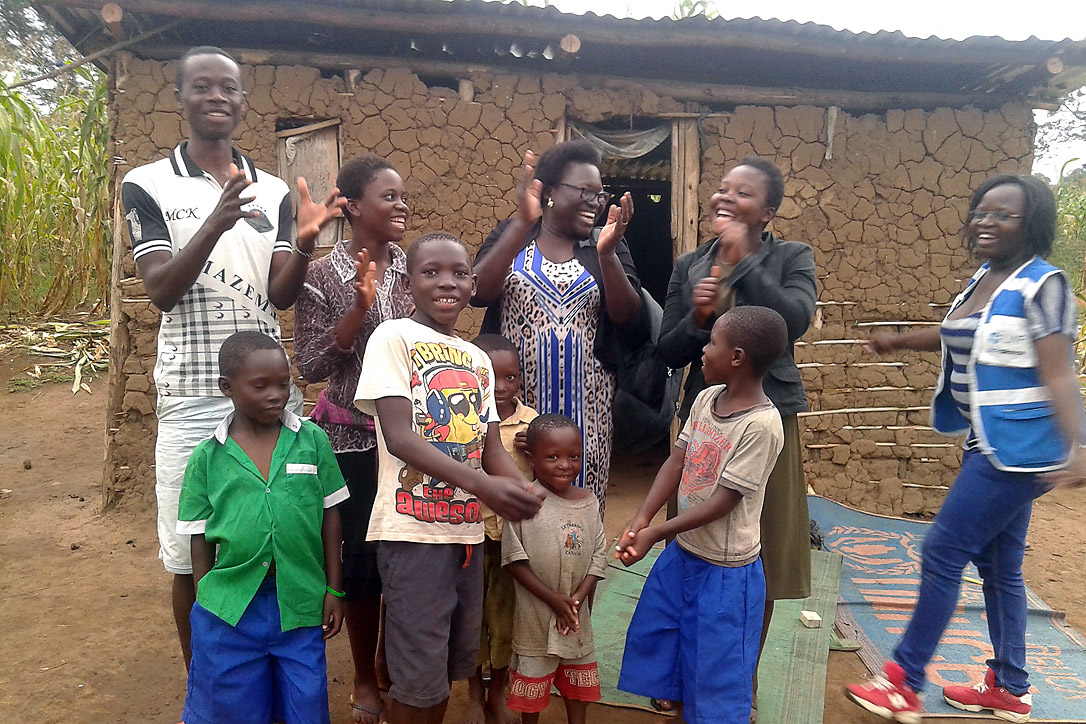
LWF Uganda responds to the humanitarian needs of DRC refugees living in Rwamwanja Refugee Settlement in the east of the country. The security situation in the eastern DRC has been volatile since a flare-up of violence in July 2011 causing refugees to cross into Uganda at a regular rate. The LWF works in multiple sectors including, running the reception center, shelter, protection and community services, water and sanitation, livelihoods and environment protection. As one of the main implementing partners of the UN refugee agency, UNHCR, LWF Uganda believes the protection and care of children needs to be an integral part of all activities when working with refugees.
Betty Lamunu is a monitoring and evaluation officer in the LWF Uganda program.

